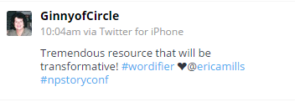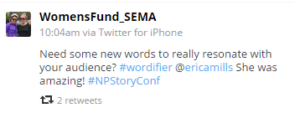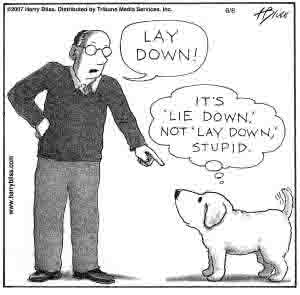 We are overjoyed to announce the arrival of our newest (and dare we say spiffiest?) tool to the Claxon family–The Wordifier!!!
We are overjoyed to announce the arrival of our newest (and dare we say spiffiest?) tool to the Claxon family–The Wordifier!!!
What the heck is The Wordifier?
The simple answer is that it’s an amplifier for your words.
The slightly more in-depth answer is that it’s a tool based on research we did to figure out what words nonprofits were using to talk about their work.
You see, the more a word is used, the less likely someone is to notice that word. It’s just how our brains work. We crave new-ness. So we figure, give the people–and their brains–what they want. Use words that others aren’t using and you dramatically up the odds that someone will pay attention.
We decided nonprofits needed this information. Yet it was nowhere to be found. We felt that was unacceptable and decided to do something about it.
Research. What research?
Here’s what we did to rectify this problem of not knowing what words nonprofits were using.
We pulled a random, yet representative, sample of 2,503 nonprofit websites. Then we partnered with Community Attributes to create a tool that would tell us which words were used most often and who was using what words.
That makes it sound easy. It wasn’t, trust me. But it was worth it because now you have a tool that will tell you exactly which words you should stop using, use with caution, or use all you want. And it’s, like, statistically significant. #OMG
#WordifierLove




We’re just starting to sift through everything our research reveals about nonprofits and language. We will be sharing everything we learn with you!
BTW, if you play with The Wordifier and have a suggestion for how we can improve it, pretty please let us know. This tool is meant to be useful, actionable, helpful, etc! So let us know your ideas in the comments, on Facebook, or Twitter using #Wordifier!
 Recently, I’ve been on a verb bender. I mentioned it in this
Recently, I’ve been on a verb bender. I mentioned it in this